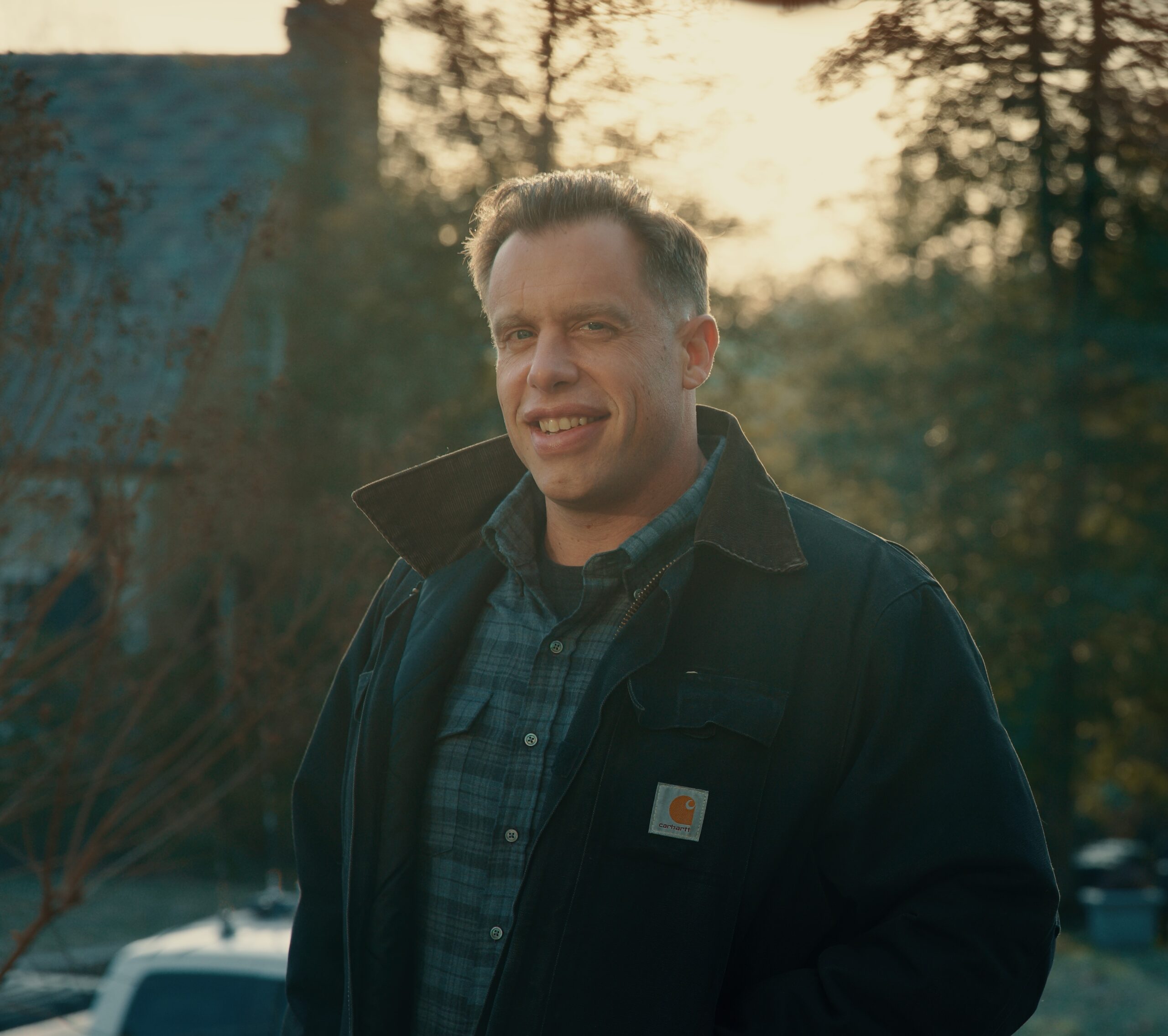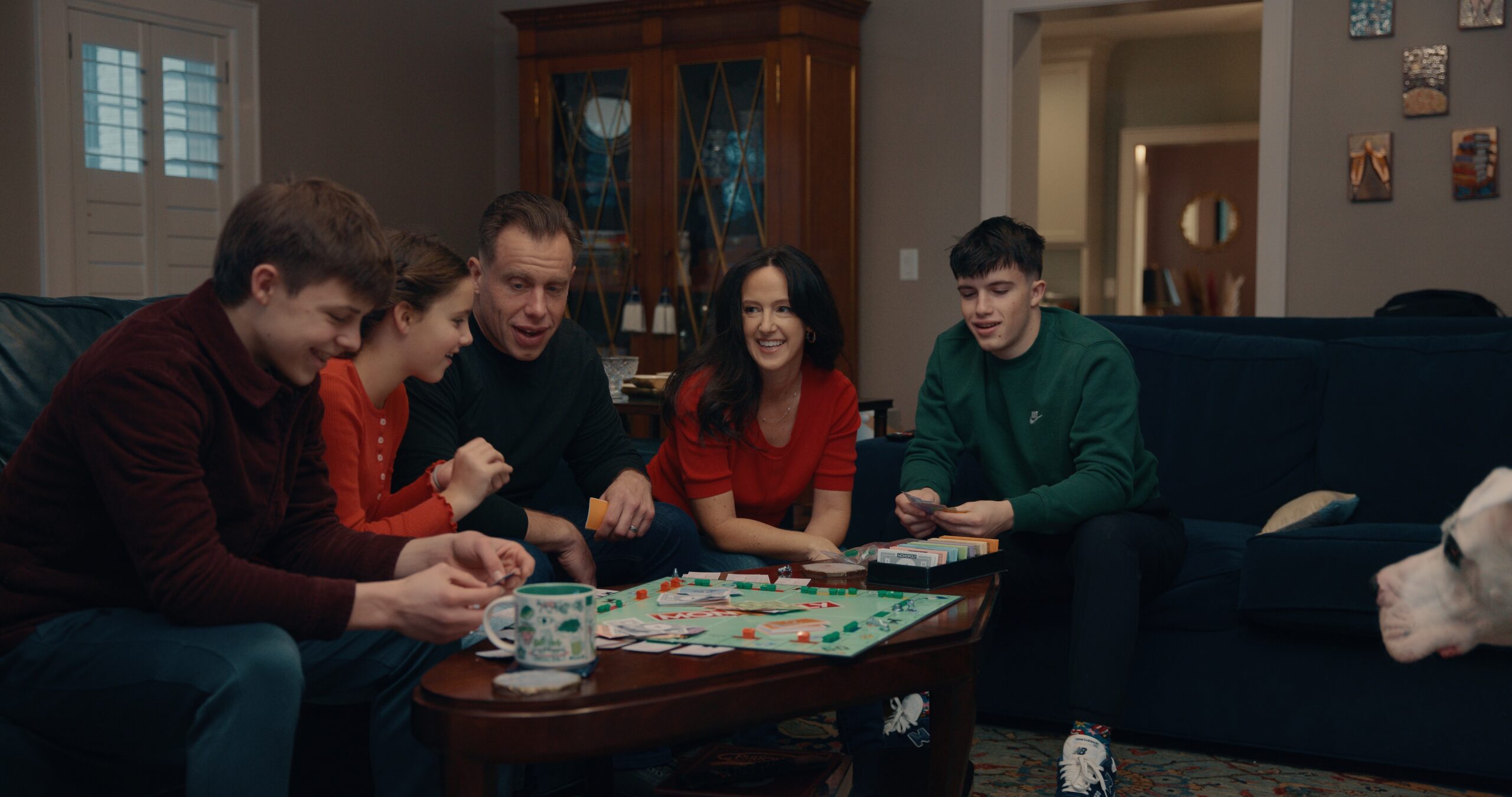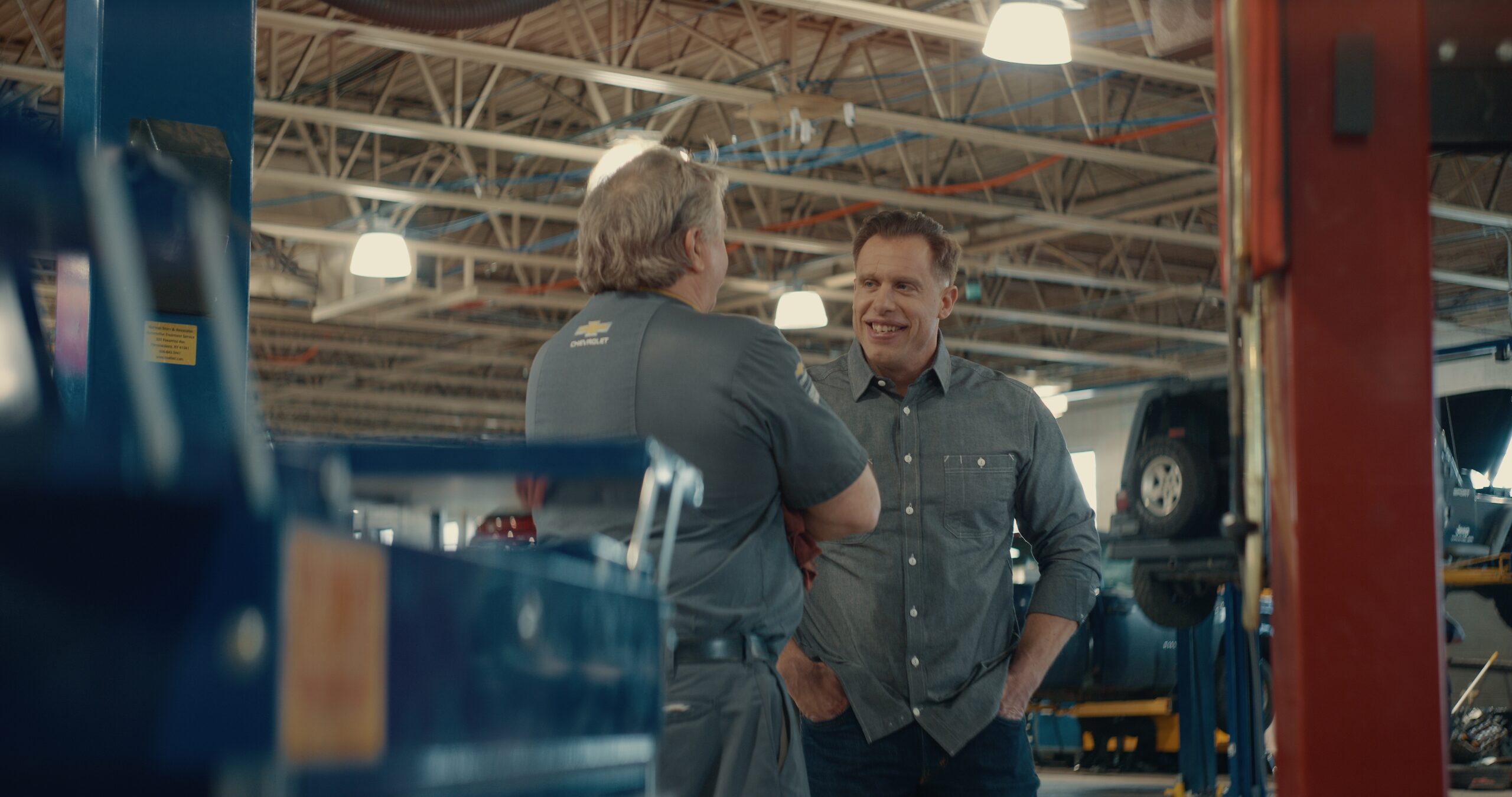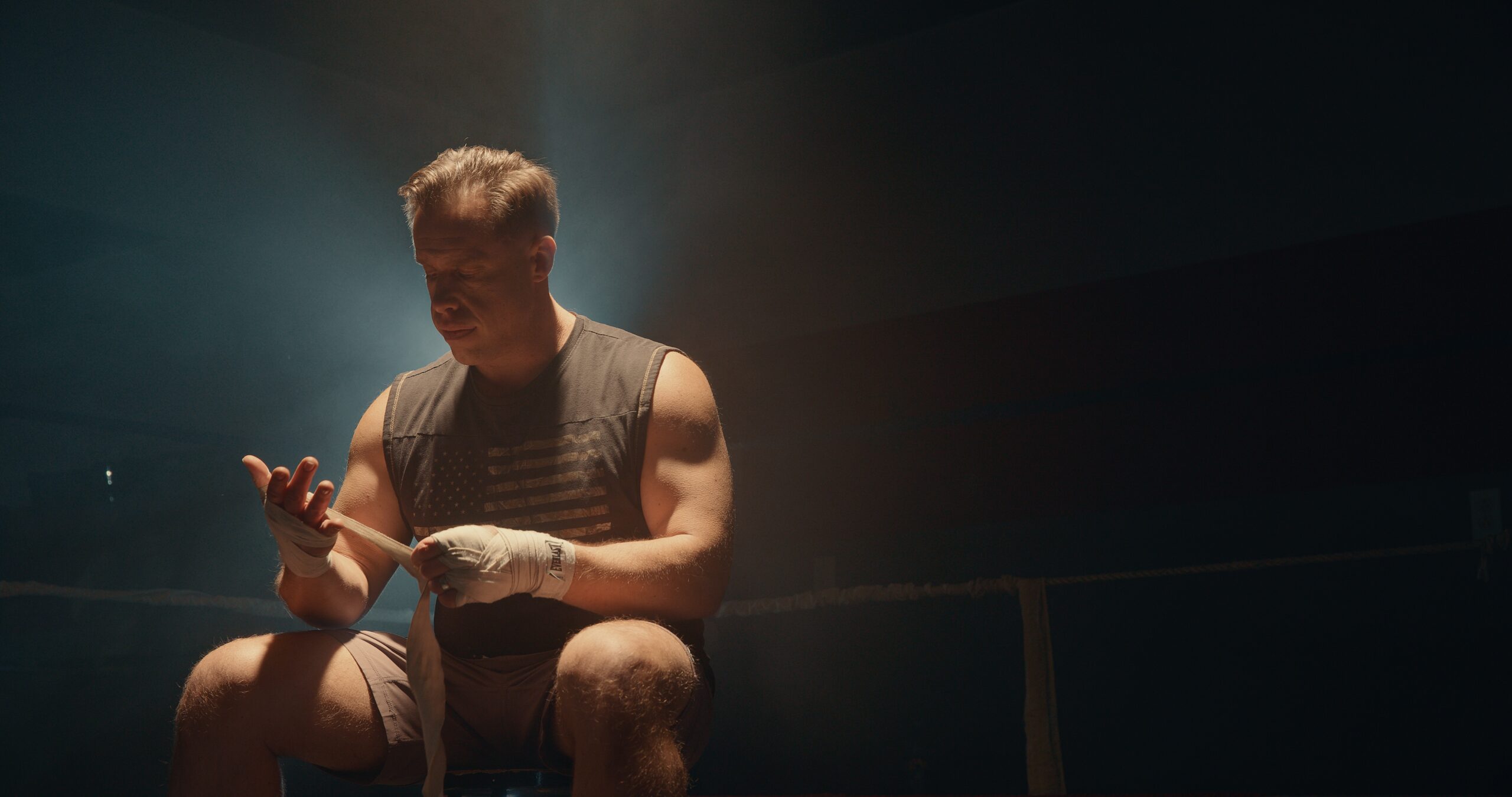For West Virginia gubernatorial "wild card" candidate Chris Miller, it all comes down to economics.
February 16, 2024
By Jeff Kelley for VADA.com
Having a healthy neighbor is important, and West Virginia has a number of challenges it must tackle and opportunities it must seize in order to gain a steady bill of health.
So at VADA, we’ve been keeping our eyes on the state's 2024 governor's race, as current Gov. Jim Justice’s term ends in January 2025 and he eyes a seat in the U.S. Senate. (Justice’s company owns The Greenbrier resort, site of our joint convention in 2023 with West Virginia, Kentucky, and Maryland dealers).

Chris Miller, a native West Virginian with dealerships in West Virginia, Virginia, North Carolina and Kansas. He is running for Governor of West Virginia.
Part of the reason why we care: One of the candidates is Chris Miller, who, among his numerous family businesses, owns Dutch Miller Auto Group with his family. The group has 13 stores, including one in the Southwest Virginia town of Wytheville. He is one in a crowded field of Republican candidates in a solidly red state where the state Attorney General, Patrick Morrisey, is the one to beat.
VADA spoke recently to Miller, who turns 45 this month, about why he wants to enter politics (he is the son of West Virginia U.S. Rep. Carol Miller), his goals for the state, and a little about his boxing career.
Jeff Kelley, VADA: Tell us: Who is Chris Miller?
Miller: I was born and raised in Huntington, West Virginia. I love the state. When I got involved in our family's business, we had two businesses. Through a lot of blood, sweat, tears and hard work, we got into 26 different enterprises. We have 13 car dealerships, we have several real estate companies. We're in insurance and reinsurance. I've got a data and technology company. And we're also bison farmers.
VADA: So, things are going well for you. Why on Earth are you going into politics?
Miller: At the end of the day, if I ran my businesses the way the government spends our tax dollars, I'd be broke. And that's a primary reason why I want to get involved.
But I really also like problem-solving. The governor should be looked at as the CEO of the state. And to realize that all of us as taxpayers really should be looked at as shareholders. And the entire job of the CEO is to manage a company, a state, to maximize return on investment for the shareholders.
We should have a very customer-centric focus on how we interact with taxpayers. Car dealers live and die by the Customer Satisfaction Index, we understand how to take care of customers, and we need to bring that same idea to government.
VADA: As Governor, you say your focus is on rebuilding the economy and running it like a business. But you say your passion is about families and keeping people in West Virginia. Explain that concept.
Miller: West Virginia's greatest export, as of now, is not our coal or natural gas. It's our kids. It's our educated kids. And they leave the state to go find gainful employment, to go find opportunity. And there's absolutely zero reason why we can't be doing that inside the state to keep our kids here.
There are all these people, interestingly, who have gone all around the country who are dying to come back home. They want to be a part of what is happening inside of West Virginia and want to come home because, at the end of the day, that's the most special thing about our state: We've got fantastic, fantastic people, and people want to come home.
VADA: It’s a plain fact that West Virginia is one of the lowest-ranked states on a range of socioeconomic indicators. What’s it going to take to turn this ship around?

Chris lives in his hometown of Huntington with his wife Cassie, their three children, and two puppies.
Miller: West Virginia has this incredibly rare window of opportunity in front of it, but also has a serious set of challenges. We've been declining in population for the past 40 years. We have an aging population. And it's going to create this perfect actuarial storm where eventually, we don't have enough of a productive tax base working to justify the big bloated existence of government. And that is going to be a very, very bad day for the state of West Virginia. Bond ratings get affected, cost of government dramatically increases. It becomes a travesty. And the real way to fix that is through economic growth and to grow the population of the state.
We have this incestuous good ol’ boy system that's been running our state for far too long. And it gets in the way of actually managing government efficiently and effectively. That's one of the first things that need to change.
We're also dead last and just about everything from economy to education, to number of grandparents raising grandkids. And that's what's happened [grandparents raising grandchildren] with the opioid epidemic — it has absolutely decimated a portion of the up-and-coming generation.
VADA: Does everyone in West Virginia know someone affected by the opioid crisis?
Miller: Me, myself. My first year of marriage, I had to choose between drugs and alcohol and my wife. I used just about every drug underneath the sun, but my real demon was alcohol. But I've been sober from alcohol and opiates for 20 years.
Addiction has impacted just about everybody. I understand it and understand what detox is. I understand where we go so wrong with rehabilitation; I understand the entire demon. And it's something that I’m very passionate about wanting to get involved and fix. Because everywhere around the country, we do rehabilitation wrong.
What the long-term data and studies tell us is that it takes 13 to 30 months, you have to have individual and group sessions, you have to have responsibilities and jobs inside of the community. You have to have rigorous exercise, you have to have a foundation of faith. And you have to have a purpose. One of the number one reasons for relapse is lack of economic opportunity or economic mobility.
VADA: Which leads to your economic plans, which seem centered on workforce development.
Miller: I'm 1,000% convinced that we need to incorporate trade training into the last stages of long-term rehabilitation to not only provide economic mobility, but to solve problems. We’ve got an entire generation of kids that can't do anything.

H. D. (Dutch) Miller founded Dutch Miller Chevrolet in 1961. Now owned and operated by Dutch’s son, Matt, and two grandsons, Chris and Sam Miller, the business has grown to include Chevrolet, Dodge, Chrysler, Jeep, Ram, Hyundai and Kia. The group employs 300 people and proudly serves the Tri-State from Huntington, Barboursville and Charleston locations, in addition to Southwest Virginia and Charlotte, N.C.
There's a workforce participation issue and there's also a major issue for demands and trades. As automotive dealers, we know how hard it is to find mechanics, but I'm talking about boilermakers, masons, HVAC repairmen, welders, carpentry, electricians, plumbers. The list just goes on and on of people who can do stuff with their hands. These are high-demand jobs of the future because we don't have enough of them.
And so we need to not only fix long-term rehabilitation by focusing on rewiring the pathways to the brain of the addict, but there is a problem-solving function, which is trade training and minimizing the chances of relapse.
VADA: You’ve been branded the wild card in the West Virginia Governor’s race. You’ve got money, but the polls aren’t tipped in your favor. Do you consider yourself an underdog?
Miller: I've been looked at as an underdog my whole life and been told, ‘You can't do that. You can't do that. You can't do that.’ And guess what I've done? I've always gone out and done it. To consider myself an underdog is nonsense.
When I look at the data, and when I go around the state and talk to people, it's exactly what people are looking for. They’re looking for a business guy, they're looking for an outsider that's never been involved in politics, they're looking for somebody that speaks their mind, they're looking for authenticity for once. And they're tired of the way these politicians sound.
Every single chance that we get to be in front of an audience on stage with all the other candidates, we're able to expose all of that. We’ve taken off like a bat out of hell.
There’s a reason why [national conservative organization] Club for Growth is attacking me. It's because they've seen the same numbers that we've seen. They’ll poll twice before they deploy capital. And then to be out attacking me and only me says something — it's that they know that I'm dangerous.
VADA: Let’s talk auto retail for a moment. You’ve set up leadership in your stores so you aren’t in the day-to-day as much. So what did it take to remove yourself and focus on other enterprises and, now, running for Governor?
Miller: Technically speaking, as a third-generation family business, I'm the one that's supposed to blow everything up, right? It’s the old adage: the first generation makes it, the second generation keeps it, the third generation loses it. That's one of the things that drives me: to do what everyone else says you can't do.
One of the things that can happen when it comes to growing businesses is to grow it on the cult of personality. I grew all of our businesses based on my drive and hard work and cult of personality, and had to restructure it. My brother stepped in and took over the role as president. We brought in a chief operating officer. We had a changeover in the CFO position. And then we restructured and reorganized the administrative side of the business to facilitate what our people needed.
Because at the end of the day, my job as a leader is to solve problems and provide an infrastructure that allows the people we work with to thrive.
We all know that the real key to any business — and in particular, our business — is people. It's the ability and the privilege to work with good people that allows you to be successful.
VADA: What are the issues in retail automotive that you think other leaders need to be watching?
Miller: At the end of the day, the most important thing is the consumer. And right now the consumer is making different decisions because they've been clamped within inflation. And what they're really worried about is the cost of a gallon of gas and the cost of a gallon of milk.
The amount of disposable income when it comes to being able to buy a car has changed. Increasing costs and interest rates have impacted that.
And then you've got really bad federal policy when it comes to forcing EVs down our throats, which is something the market does not want. And the utility grid system can't facilitate it.
We're experiencing a shift when it comes to the post-pandemic automotive space. The dealers that let processes dissolve are the ones that are going to be struggling the most moving forward. The dealers that really focus on process and allow for a sales process to be followed, and have a service writer process, are the ones that are going to do better as we move into this post-pandemic automotive economy. It's going to be like a return to 2016 but with higher interest rates.
Focusing on process and F&I opportunities is where dealers are going to be able to thrive.
VADA: You consider yourself a staunch conservative in a red state. But West Virginia still has independents, moderates, and liberals who will be critical to earning your vote. Why should they support you?

For Miller, boxing runs in the family. He's hung up the gloves on fights, but continues to train and spar.
Miller: We can argue about little dumb things and get distracted. But really, at the end of the day, everything is about economics. It is about how much money is in your pocket for just about everybody out there.
One of the most important things that we can do is not only maintain true to the values that we all believe in, but run a government more like a business to create an economy that thrives. Anybody that wants to be a part of that, that's a great thing. Those are the real problems we face that are important to fixing our state.
If you think about what economic growth does and what population growth does, not only does it grow the state's ability to have good solid financial standing, but then everything else that's connected to it. The cost of healthcare goes down. Workers’ comp modifiers decrease. Insurance premiums go down. Everything gets impacted by economic growth and development.
Capital flows like water to the places that it's most welcome. And when you make yourself welcome to Investment, then all of a sudden, Whammo, you've got all the ingredients to grow an economy, and everything else gets impacted by that.
VADA: What is your first order of business if you get elected?
Miller: Working with the legislature to accelerate getting rid of the state income tax.
Three of the four fastest growing states post-pandemic are Tennessee, Texas, and Florida. And they all have one thing in common: zero state income tax.
Secondly, we are moving into a time, as we grow technology, you must have baseload power to provide the technology growth and the infrastructure needed for any economy. West Virginia has an abundance of coal, it has an abundance of natural gas, it has the potential for nuclear power, and we also have more water that passes through our state than any other state in the country.
VADA: Can coal come back to West Virginia, or do you have to look for alternative industries?
Miller: The history of our state is that we've been extracted and don't have a lot to show for it. Coal will be a part of West Virginia, the trick is getting Environmental Protection Agency approval on mines. We do have more coal to be mined. But when you have a federal government that wants to sit on permits, or deny permits, or not let you open up mines, you've got a problem.
We do have several active mines that are doing a great job. We are still one of the top coal producers in the country. But we actually can do more if we get smart and we get creative.
And there are rare earth elements in West Virginia. I believe that we can leverage all of our resources to make West Virginia the state in the union with the cheapest power in the country, and use that for the foundation of all of our economic growth and development.
And I'm talking about 50 to 70% reduction in power costs, and using that as something that not only drives the economy, but is something that is good for everyone. A business will look at West Virginia as having incredibly low taxes, low regulatory barriers, and very, very cheap power as a place to come.
And if you think about older West Virginians, if you cut their power bill by 50 to 70%, you've done something impactful and meaningful for them. That's more money they have in their pockets to take care of their grandkids. More money to do things inside of the local economy. More money to do anything that they need.
That’s what I think is the great leveling game changer: leveraging our assets to do something to drive economic growth and development for everybody.
VADA: What do you do outside of politics and business?
Miller: My wife Cassie and I have three children. I box. I was rated number one in my age and weight class and division in USA Boxing in 2022. I've now hung up the gloves because that was the deal I had with my wife; apparently fighting made her nervous as can be. So I hung up the gloves to run for governor but I still train and workout and spar. My family has a history of boxing and I love the sport.
VADA: Any final thoughts or messages?
Miller: Watch out. We are breaking away as we speak. And we've got some very fun creative advertising and marketing out there that is going to be very different than what politicians have provided when it comes to communicating with voters.
VADA: As an auto dealer, you assuredly have that creative ace up your sleeve.
Miller: As auto dealers, we're good at marketing. And an election is a marketing contest.
